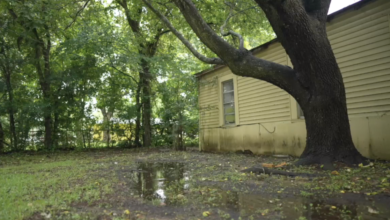
For decades, Black farmers say they have been at the mercy of historically discriminatory lending practices by the U.S. government and banks that do not treat them fairly.
“Farming is really hard for white males, and if it’s really hard for white males, then it’s dreadful for anyone else,” said Zephrine Hanson, an urban farmer who grows small crops she then sells to artisan shops.
Hanson and others say the practices have led to a precipitous decline in the number of Black farmers in our country.
According to the Census of Agriculture, there were roughly 1 million Black farmers in the United States in 1920, comprising around 14 percent of the total number of farmers in the United States.
In 2020, according to the same data, the number of Black farmers in the U.S. had fallen to 45,000, comprising only 1.4 percent of all farmers.
“You know, when you take a man’s farm, it’s not like he’s going down to work at McDonald’s,” said Dr. John Boyd, CEO of the National Black Farmer’s Association. “You break his spirit. You take his history, and dignity, and respect, and you crush him.”
Boyd says he founded the NBFA in the 1980s after he and four other Black farmers would experience discriminatory practices at the hands of the United States Department of Agriculture (USDA) when they would go into the office and ask for loans.
“At one particular time, [the director of the local USDA] spat on my shirt,” said Boyd. “He tore my application up and threw it in the trash can. I was pleading for $5,000, and this white farmer comes in, during my time when I’m supposed to be getting this loan, and he passes [the white farmer] a government check for $157,000.”
We reached out twice to the USDA for comment but have not gotten a response.
Boyd says, today, discrimination is less blatant. It can be something like pleasantly-worded letters saying loans cannot be processed and a farmer will have to try again next year. But to farmers of color, it is difficult; federal loans are often their only funding option outside of predatory lenders and suppliers who charge outrageous interest rates.
Otherwise, in a business built on credit, Black farmers are pushed out and forced to sell their farms.
“I’ll be honest, I hope the USDA changes, but I’m not waiting,” said Hanson. “That’s definitely something they’ll have to want to change.”
In 1997, more than 400 Black farmers filed a class action lawsuit against the USDA in what became known as Pigford vs. Glickman, charging the agency with discrimination against Black farmers. The government settled for more than $1.25 billion, the largest discrimination settlement ever paid by the federal government.









